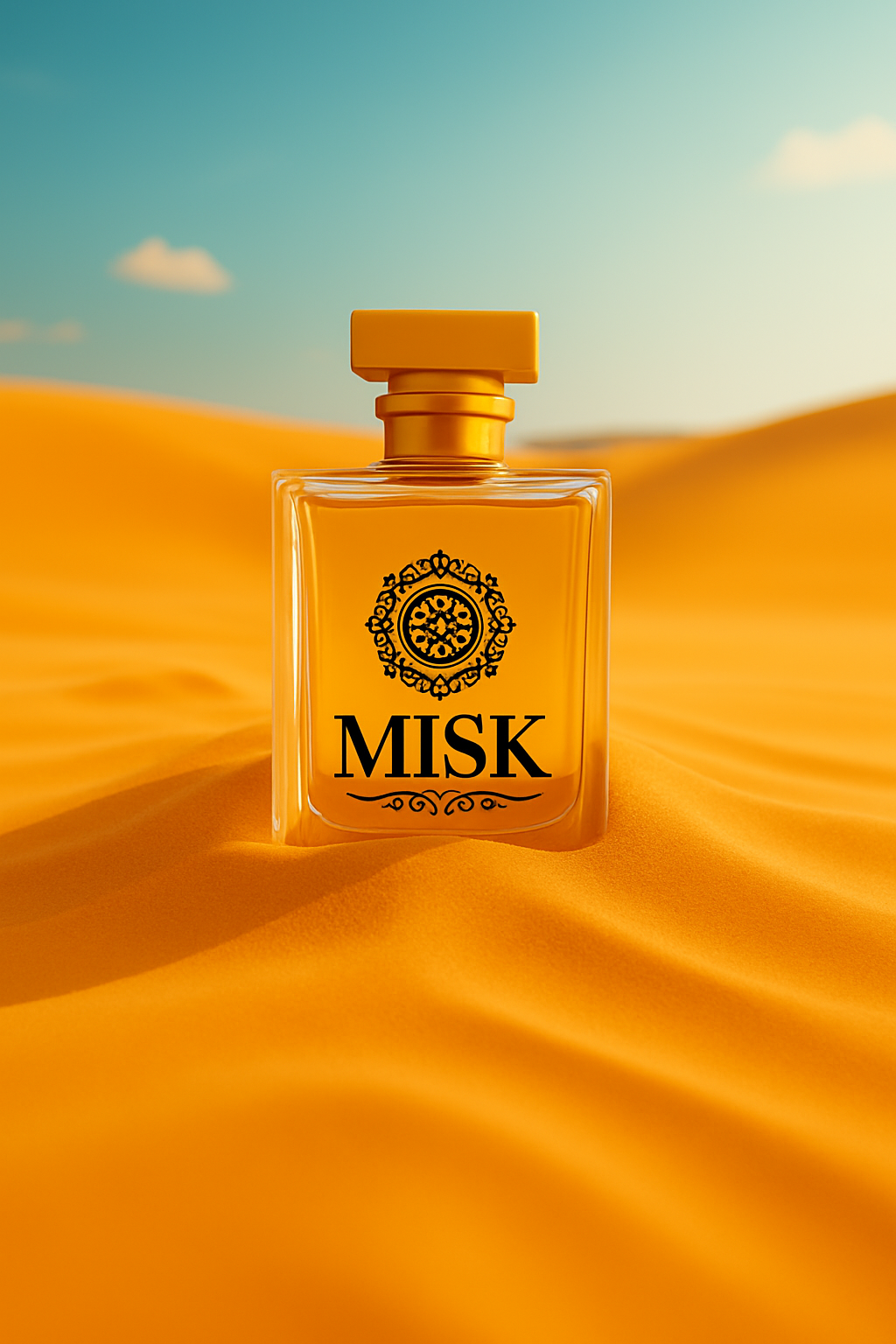- +974 307 011 14
- info@miskarabia.com
- Marina Tower 50 – Lusail 69 – Street: 315 – Floor: 16 Qatar – P.O.Box: 13166

In the heart of every authentic Arabian fragrance, Misk was born — a brand specializing in personal care, inspired by the magic of black musk and its traditional uses in purification and body care, passed down through generations.
At Misk, we believe that personal care begins with respecting the body, appreciating heritage, and choosing the best.
Hence, our idea to develop an integrated collection of personal care products based on the benefits of black musk, known for its purifying and antibacterial properties, in addition to its luxurious fragrance beloved by Arabs since ancient times.


Musk in Ancient Civilizations
Musk is one of the oldest and most precious natural perfumes in the world, and its name has always been associated with luxury, purity, and spirituality.
In ancient civilizations, it was used as a key ingredient in perfumes and religious rituals.
Musk is typically extracted from small glands found in the pubic area of certain animals, such as deer and gazelles.
In Islamic civilization, musk became a symbol of cleanliness and purity, and the Prophet Muhammad (peace be upon him) loved its scent and encouraged its use, especially in purification after bathing
🐘 The Sumerian Civilization
The Sumerians are considered among the first people to use musk, employing it in religious and therapeutic rituals, and they believed it had spiritual and medicinal properties.
🐫 The Arabian Civilization
In the pre-Islamic era, Arabs valued musk and used it in perfumes and incense, and it was considered a sign of wealth and luxury.
Musk in Ancient Chinese Civilization: A Journey Through Time
Musk (麝香 – She Xiang) is considered one of the oldest and most precious aromatic substances used by the Chinese, with a prominent presence in traditional medicine, religious rituals, and perfume making.
Musk is extracted from a gland located in the abdomen of the male musk deer (Moschus), an animal found in the Chinese highlands, such as the provinces of Shaanxi, Gansu, Sichuan, and Yunnan.
In traditional Chinese medicine, musk is used to stimulate blood circulation, relieve pain, and open vital pathways.
It is considered a main ingredient in many traditional medicines, such as “Musk Heart-Saving Pills” (麝香保心丸).
Musk was used in incense during religious rituals to purify places and ward off evil spirits.
It was also added to the ink used in writing manuscripts, giving them a pleasant scent and believed to enhance concentration and mental clarity.
Musk was used as a fragrance fixative in perfume making, added to aromatic blends to prolong the duration of the scent.
It was considered one of the luxurious ingredients used by the upper classes in Chinese society.
Musk is mentioned in the Holy Quran in describing the bliss of the righteous in Paradise, where God says:
“The final seal of it is [that of] musk. And for that let the competitors compete.” (Surah Al-Mutaffifin, Verse 26)
This indicates the status of musk as a symbol of fragrance and purity in Islam.
🕋 In the Prophet’s Tradition (Sunnah)
The Prophet Muhammad (peace be upon him) praised musk and considered it one of the best types of fragrance, saying:
“The best of perfumes is musk.” (Reported by Muslim)
The Prophet (peace be upon him) loved to perfume himself with musk, and its use is encouraged in religious occasions such as Ihram (the sacred state of pilgrimage), and it is used in perfuming the deceased and the shroud, reflecting its association with purity and spirituality.
